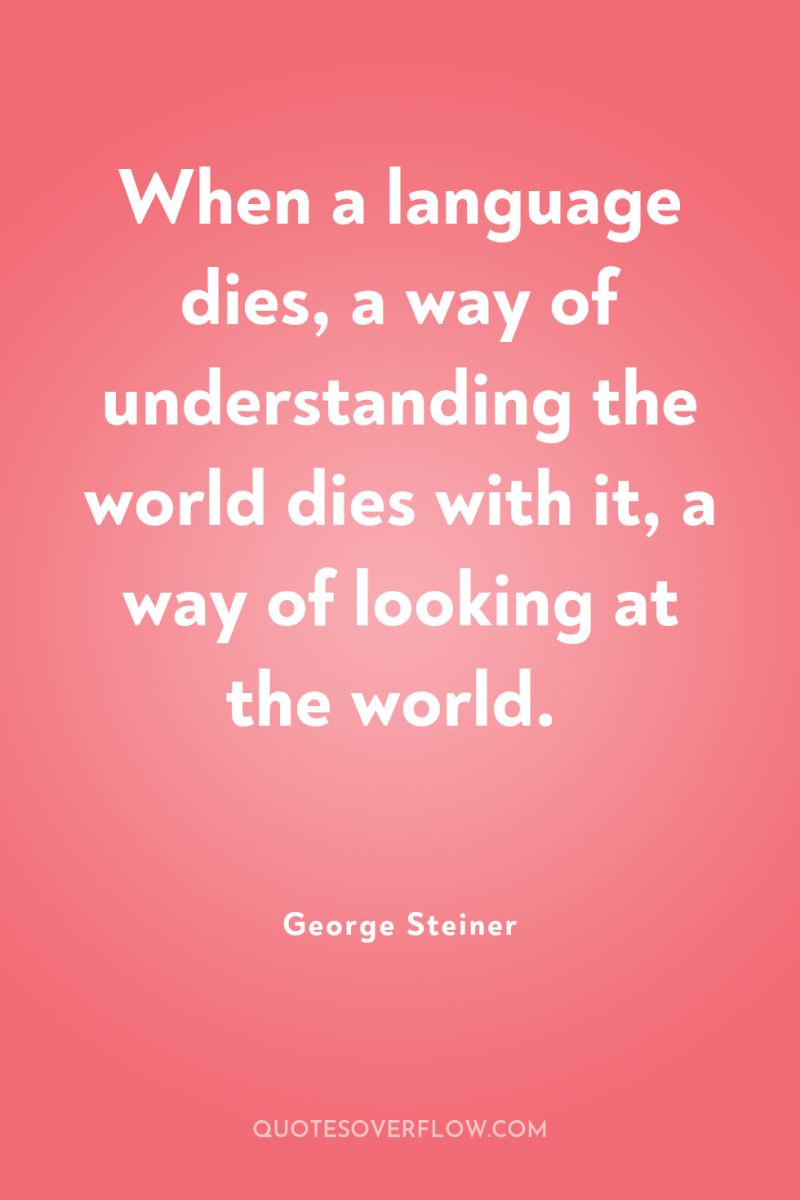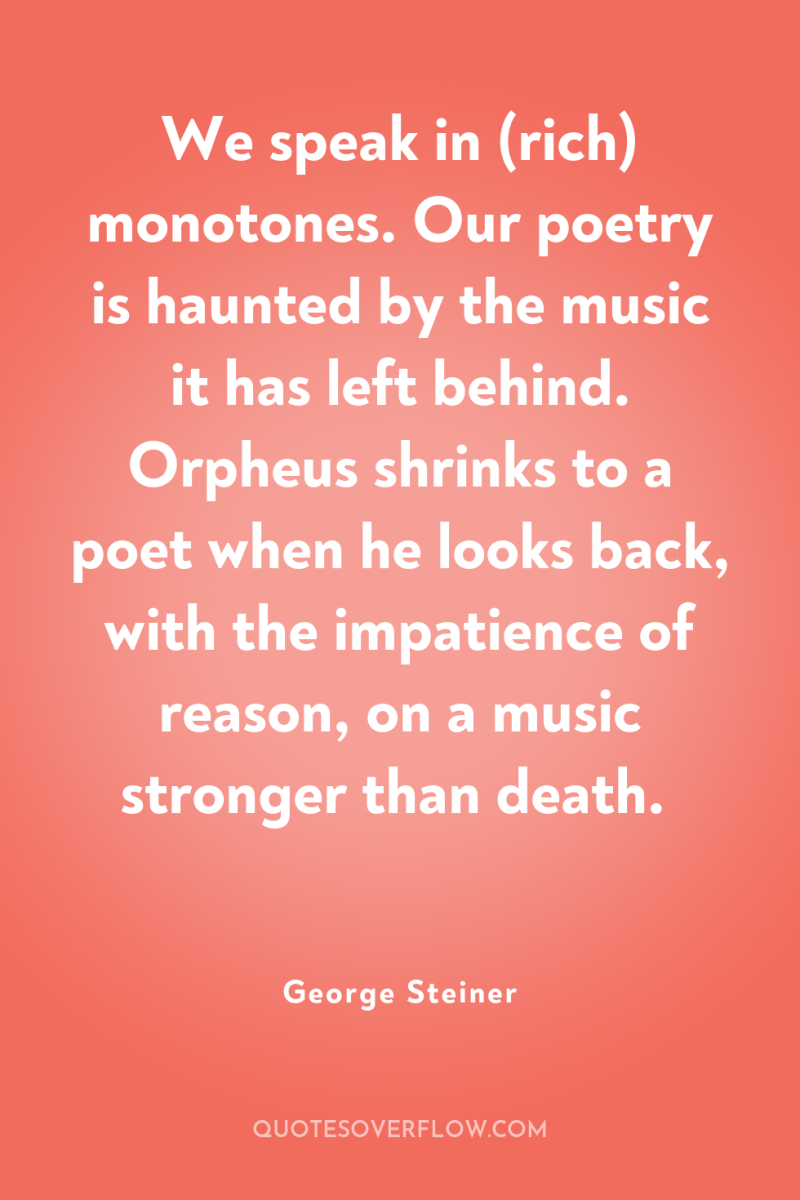
When a language dies, a way of understanding the world dies with it, a way of looking at the world.George Steiner

We speak in (rich) monotones. Our poetry is haunted by the music it has left behind. Orpheus shrinks to a poet when he looks back, with the impatience of reason, on a music stronger than death.George Steiner

Books - the best antidote against the marsh-gas of boredom and vacuityGeorge Steiner
What you don't know by heart you haven't really loved deeply enoughGeorge Steiner
The inception of human consciousness, the genesis of awareness, must have entailed prolonged 'condensations' around intractable nodes of wonder and terror, at the discriminations to be made between the self and the other, between being and non-being (the discovery of the scandal of death).George Steiner
No phonetic sign, except at a rudimentary, strictly speaking pre-linguistic level of vocal imitation, has any substantive relation or contiguity to that which it is conventionally and temporally held to designate.George Steiner
When a language dies, a possible world dies with it.George Steiner
Language can only deal meaningfully with a special, restricted segment of reality. The rest, and it is presumably the much larger part, is silence.George Steiner
There would be no history as we know it, no religion, no metaphysics or aesthetics as we have lived them, without an initial act of trust, of confiding, more fundamental, more axiomatic by far than any “social contract” or covenant with the postulate of the divine. This instauration of trust, this entrance of man into the city of man, is that between word and world.George Steiner
The calling of the teacher. There is no craft more privileged. To awaken in another human being powers, dreams beyond one’s own; to induce in others a love for that which one loves; to make of one’s inward present their future; that is a threefold adventure like no other.George Steiner
If, in the Judaic perception, the language of the Adamic was that of love, the grammars of fallen man are those of the legal code.George Steiner
The fantastically wasteful prodigality of human tongues, the Babel enigman, points to a vital multiplication of mortal liberties. Each language speaks the world in its own ways. Each edifies worlds and counter-worlds in its own mode. The polyglot is a freer man.George Steiner
The ordinary man casts a shadow in a way we do not quite understand. The man of genius casts light.George Steiner
Given my age, I am pretty near the end, probably, of my career as a writer, a scholar, a teacher. And I wanted to speak of things I will not be able to do.George Steiner
I learned early on that 'rabbi' means teacher, not priest.George Steiner
We know that a man can read Goethe or Rilke in the evening, that he can play Bach and Schubert, and go to his day's work at Auschwitz in the morning.George Steiner
My father loved poetry and music. But deep in himself he thought teaching the finest thing a person could do.George Steiner
Books are in no hurry. An act of creation is in no hurry; it reads us, it privileges us infinitely. The notion that it is the occasion for our cleverness fills me with baffled bitterness and anger.George Steiner